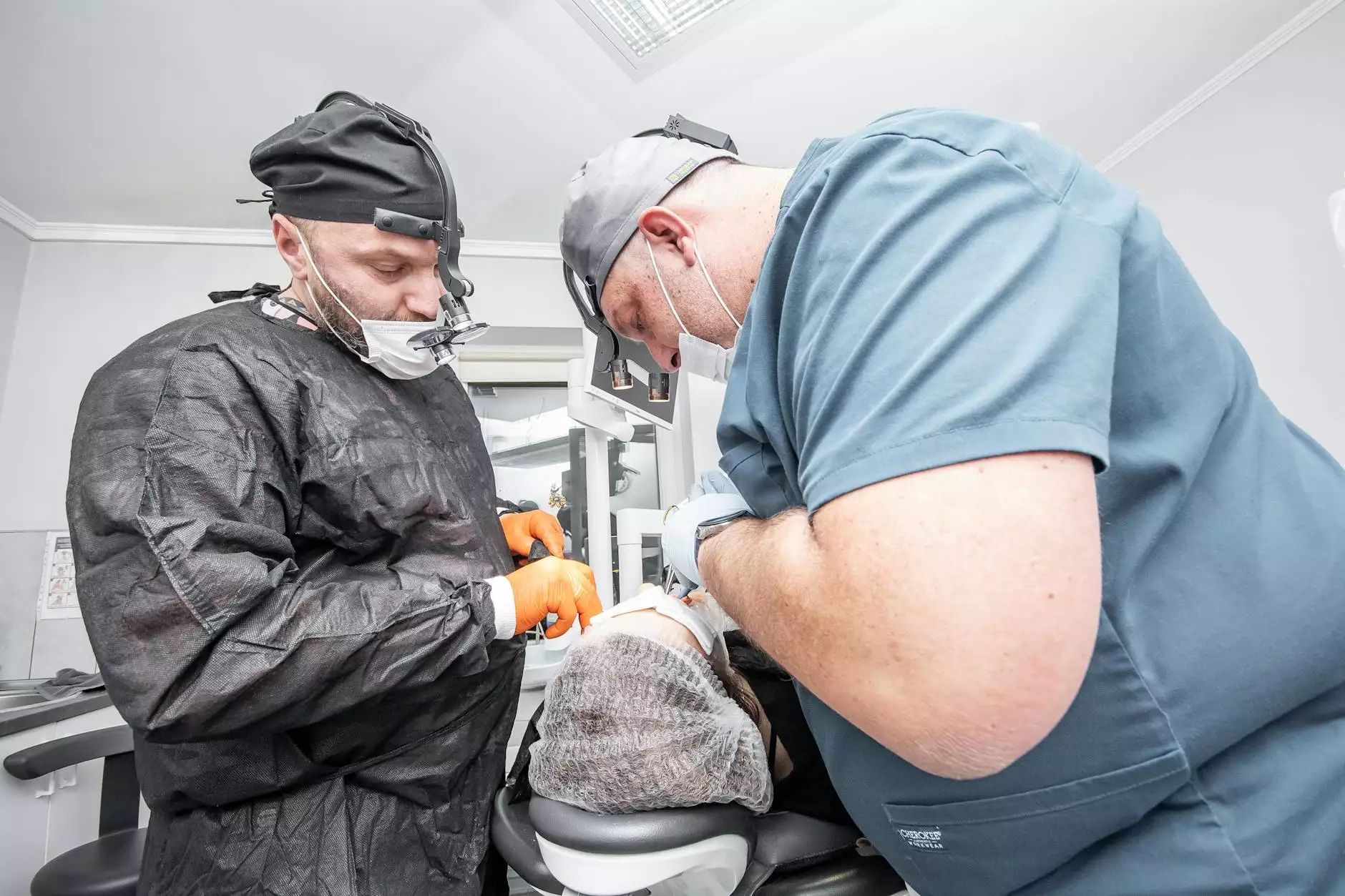The Importance of ID Hospitals in Modern Healthcare

In today’s fast-paced world, healthcare systems are evolving rapidly to meet the demands of a growing population and the complexities of medical care. Among the many innovations in healthcare, the concept of ID hospitals plays a critical role in ensuring efficient patient management and superior medical services. This article delves into the multifaceted significance of ID hospitals, exploring their operational mechanisms, benefits, and the essential role they play in the overarching framework of healthcare.
Understanding the Concept of ID Hospitals
At its core, an ID hospital is an establishment that integrates patient identification systems with healthcare services. The term “ID”—which can refer to identification—highlights the fundamental necessity for accurate and reliable patient data management. In essence, ID hospitals serve as the nexus of information and medical care.
The Evolution of Healthcare Identification Systems
Historically, healthcare systems faced significant challenges regarding patient identification. Medical errors, mismatched records, and billing discrepancies stemmed from the lack of standardized identification processes. With the advent of technology, particularly Electronic Health Records (EHR) and biometric systems, the landscape of healthcare identification has transformed dramatically.
The Role of ID Hospitals in Patient Care
ID hospitals enhance patient care in several substantial ways:
- Accurate Patient Identification: ID hospitals utilize advanced identification technologies to reduce errors in patient identification. This is crucial in administering the right treatments and medications.
- Streamlined Data Management: By centralizing patient data, ID hospitals ensure that healthcare providers have instant access to accurate medical histories, leading to improved decision-making.
- Improved Patient Safety: With correct identification, the risk of adverse events is significantly minimized, enhancing the overall safety of patients during their medical encounters.
- Efficient Resource Allocation: ID hospitals can track resource utilization effectively, allowing for better allocation of medical staff and facilities.
Innovative Technologies in ID Hospitals
The integration of technology is paramount in the functioning of ID hospitals. Some of the innovative technologies include:
- Biometric Identification: Fingerprint and facial recognition systems allow for unique patient identification, ensuring that the right person receives the appropriate treatment.
- RFID Technology: Radio Frequency Identification (RFID) is used for tracking patients' movements within the hospital, facilitating better monitoring and management of care.
- Mobile Applications: Patient portals and mobile applications are increasingly being implemented to empower patients with access to their health information and treatment plans.
Benefits of ID Hospitals in Healthcare Systems
The presence of ID hospitals in the healthcare ecosystem presents numerous advantages, including:
- Enhanced Communication: With a centralized identification system, communication among healthcare professionals improves significantly, leading to coordinated care.
- Cost Efficiency: Reducing errors and improving operational efficiency leads to cost savings for both healthcare providers and patients.
- Patient Empowerment: Patients gain more authority over their healthcare choices as they have access to their identification and medical history, fostering a deeper doctor-patient relationship.
- Data Security: As patient data is digitized and managed securely, compliance with healthcare regulations such as HIPAA becomes more manageable.
Challenges Facing ID Hospitals
Despite their benefits, ID hospitals face several challenges that must be addressed:
- Technological Integration: Integrating new technologies into existing healthcare systems can be complex and resource-intensive.
- Data Privacy Concerns: Managing and storing sensitive patient data raises concerns over privacy and security breaches.
- Training Staff: Ensuring staff are adequately trained to utilize new identification processes and technologies is essential for the success of ID hospitals.
How ID Hospitals Contribute to Research and Development
The impact of ID hospitals extends beyond immediate patient care; they also play a pivotal role in medical research and development. By providing researchers with accurate data on patient demographics, health trends, and treatment outcomes, ID hospitals facilitate the advancement of medical knowledge and the development of effective treatments.
Data-Driven Decision Making
Access to a robust database of patient data allows healthcare institutions to conduct in-depth research. This data-driven approach leads to:
- Improved Medical Outcomes: Researchers can analyze the effectiveness of treatments across diverse populations, leading to a more profound understanding of healthcare practices.
- Informed Policy Development: Health policies can be tailored based on statistical insights gathered from ID hospitals, addressing the specific needs of communities.
- Innovation in Treatment Approaches: The continuous flow of data encourages innovation in treatment methodologies and healthcare solutions.
The Future of ID Hospitals
The future of ID hospitals appears promising as technological advancements continue to develop. Upcoming trends likely include:
- Artificial Intelligence: AI will play a significant role in personalizing patient care by analyzing vast datasets to predict health trends and potential complications.
- Telemedicine: Integration of telemedicine services will enable ID hospitals to provide remote care, enhancing accessibility for patients in underserved areas.
- Blockchain Technology: Utilization of blockchain for secure patient data management is expected to revolutionize how health information is stored and retrieved.
Conclusion: Why Choose an ID Hospital
In conclusion, the impact of ID hospitals on the healthcare landscape is undeniable. They not only enhance patient safety and communication but also pave the way for innovative research and development. As a crucial player in today’s medical environment, ID hospitals represent a convergence of technology and care that benefits all stakeholders involved.
For those seeking exceptional medical services backed by reliable identification systems, MediGlobus offers a comprehensive platform for connecting with the best health and medical services globally. Embracing the future of healthcare starts with understanding the systems in place—like ID hospitals—that make excellent patient care possible.









